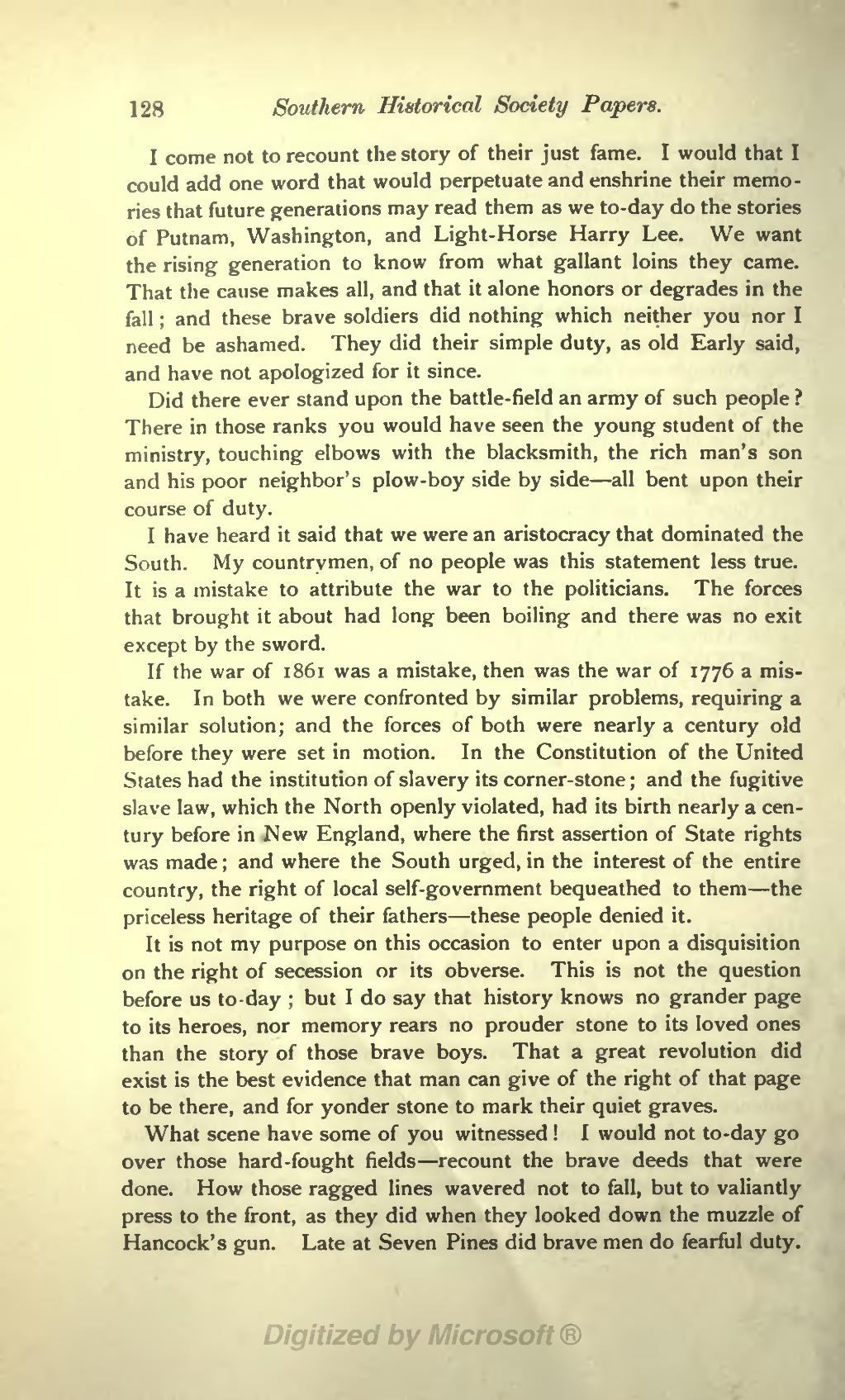128 Southern Historical Society Papers.
I come not to recount the story of their just fame. I would that I could add one word that would perpetuate and enshrine their memo- ries that future generations may read them as we to-day do the stories of Putnam, Washington, and Light-Horse Harry Lee. We want the rising generation to know from what gallant loins they came. That the cause makes all, and that it alone honors or degrades in the fall ; and these brave soldiers did nothing which neither you nor I need be ashamed. They did their simple duty, as old Early said, and have not apologized for it since.
Did there ever stand upon the battle-field an army of such people ? There in those ranks you would have seen the young student of the ministry, touching elbows with the blacksmith, the rich man's son and his poor neighbor's plow-boy side by side all bent upon their course of duty.
I have heard it said that we were an aristocracy that dominated the South. My countrymen, of no people was this statement less true. It is a mistake to attribute the war to the politicians. The forces that brought it about had long been boiling and there was no exit except by the sword.
If the war of 1861 was a mistake, then was the war of 1776 a mis- take. In both we were confronted by similar problems, requiring a similar solution; and the forces of both were nearly a century old before they were set in motion. In the Constitution of the United States had the institution of slavery its corner-stone ; and the fugitive slave law, which the North openly violated, had its birth nearly a cen- tury before in .New England, where the first assertion of State rights was made ; and where the South urged, in the interest of the entire country, the right of local self-government bequeathed to them the priceless heritage of their fathers these people denied it.
It is not my purpose on this occasion to enter upon a disquisition on the right of secession or its obverse. This is not the question before us to-day ; but I do say that history knows no grander page to its heroes, nor memory rears no prouder stone to its loved ones than the story of those brave boys. That a great revolution did exist is the best evidence that man can give of the right of that page to be there, and for yonder stone to mark their quiet graves.
What scene have some of you witnessed ! I would not to-day go over those hard-fought fields recount the brave deeds that were done. How those ragged lines wavered not to fall, but to valiantly press to the front, as they did when they looked down the muzzle of Hancock's gun. Late at Seven Pines did brave men do fearful duty.
